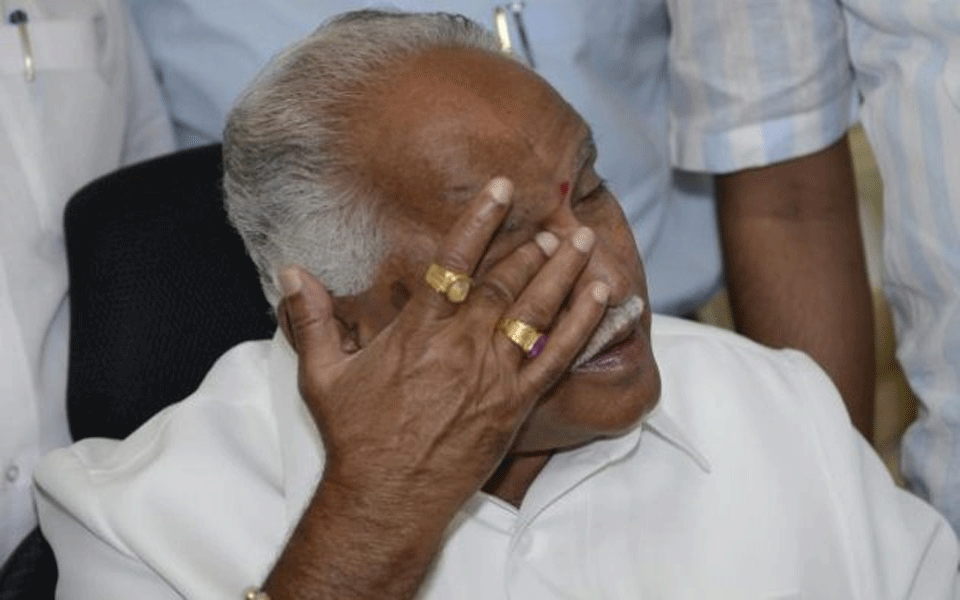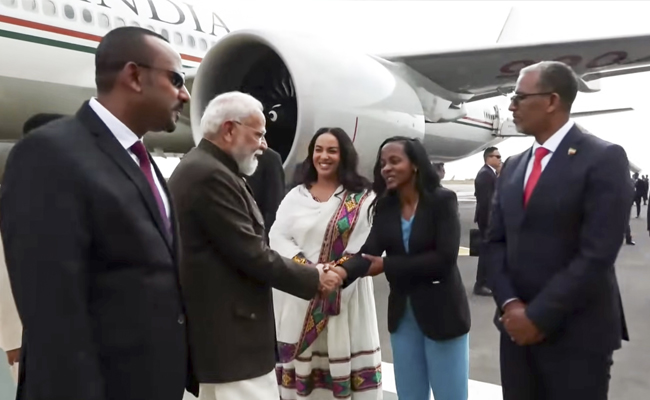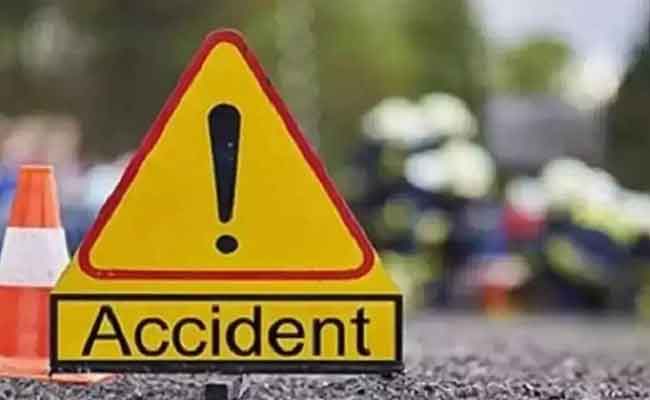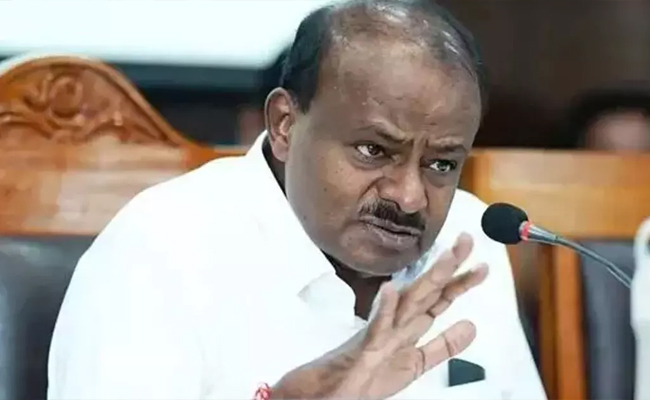Bengaluru, May 19: Chief Minister B.S. Yeddyurappa resigned on Saturday before facing a crucial trust vote in the Karnataka Assembly with numbers stacked against the BJP in the newly elected House, bringing an end to a political thriller that began after May 12 elections threw up a hung verdict.
In an emotional speech in the Assembly, Yeddyurappa said the BJP didn't get the numbers needed to prove majority in the House.
"I will lose nothing if I lose power, my life is for the people," he said.
In his 15-minute speech, the 75-year-old BJP leader said there was no way he could have served the people of Karnataka as the Congress was not even allowing its MLAs to speak to their family members.
"If only people would have given us 113 seats instead of 104, we would have made this state a paradise. But I will fight for the state till my last breath. We will get 28 out of 28 seats in Lok Sabha and I will win 150 Assembly seats for Narendra Modi (in the next Assembly elections)," Yeddyurappa said.
Asserting that the mandate showed that the state's people have rejected the Congress and the Janata Dal-Secular (JD-S), he said: "People have voted against the Congress' misgovernance. I have faced many 'agni pareeksha' (trial by fire) in the past and this trust vote is just another one."
He then he would resign as the Chief Minister of Karnataka and after the speech, drove to the Raj Bhavan to submit his resignation to Governor Vajubhai Vala.
The resignation comes two days after he took oath as the 23rd Chief Minister of the state.
The May 12 election across the state in 222 constituencies of the 225-member assembly, including one nominated, threw up a hung House, with no party securing majority. Polls in two constituencies were deferred.
Of the 222 seats, the BJP won 104, the Congress 78, the Janata Dal-Secular, 37 and one each was bagged by the Bahujan Samaj Party, the Karnataka Pragnyavantha Janatha Party and an Independent.
As JD-S leader H.D. Kumaraswamy won from both Channapatna and Ramanagara segments, the party's effective strength in the House was 36.
As the single largest party, the BJP was short of crossing the halfway mark.
Yeddyurappa required the 111 halfway mark to win the motion or one more than the half of the members present at the time of the floor test was conducted in the House with an effective strength of 221.
Though the Governor had directed Yeddyurappa to seek a vote of confidence on the floor of the House within 15 days from the date of assumption of office as the Chief Minister (May 17), a three-judge bench of the Supreme Court ordered the floor test on Saturday, rejecting his plea for a week's time to prove his majority.
Let the Truth be known. If you read VB and like VB, please be a VB Supporter and Help us deliver the Truth to one and all.
Addis Ababa (PTI): Prime Minister Narendra Modi arrived in Ethiopia on Tuesday on the second leg of his three-nation tour, aimed at strengthening ties between the two countries.
Prime Minister Dr Abiy Ahmed Ali received PM Modi at the Addis Ababa International Airport. In a unique gesture, he also drove Modi to the hotel.
On the way, he took a special initiative of taking PM Modi to the Science Museum and Friendship Park, which was not in the itinerary.
PM Ali informed his Indian counterpart about the varieties of Ethiopian coffee during informal talks.
The Nobel Peace Prize-winning Ethiopian PM’s special gestures show remarkable respect for Modi, sources said.
ALSO READ: Goa nightclub fire: Luthra brothers deported from Thailand, taken into police custody
"Celebrating age-old India-Ethiopia ties! Prime Minister @narendramodi arrives in Addis Ababa on his maiden bilateral visit to Ethiopia. In a special gesture, PM @AbiyAhmedAli came to personally receive him at the airport. Prime Minister was accorded a warm and colourful welcome," Ministry of External Affairs Spokesperson Randhir Jaiswal posted on social media.
"Ethiopia is a key partner for India in the Global South and a fellow BRICS Member," he added.
Modi will be holding wide-ranging discussions with his counterpart on all aspects of India–Ethiopia bilateral ties.
“As partners in the Global South, the visit will be a reiteration of the shared commitment of the two nations to advance close ties of friendship and bilateral cooperation,” a statement issued by the Ministry of External Affairs said before his departure from India.
In his first visit to Ethiopia, Modi will address the Joint Session of Parliament and share his thoughts on India's journey as the "Mother of Democracy" and the value that the India-Ethiopia partnership can bring to the Global South.
He will also meet the Indian diaspora during the two-day visit.
Addis Ababa is also the headquarters of the African Union.
In 2023, during India’s G20 Presidency, the African Union was admitted as a permanent member of the G20.
PM Modi arrived in Ethiopia from Jordan, where he held a one-on-one meeting with King Abdullah II at the Husseiniya Palace on Monday before the delegation-level talks.
India and Jordan also inked MoUs in the fields of culture, renewable energy, water management, digital public infrastructure and twinning arrangement between Petra and Ellora, aimed at giving a major boost to bilateral ties and friendship.
From Ethiopia, Modi will visit Oman on the final leg of this three-nation tour.





